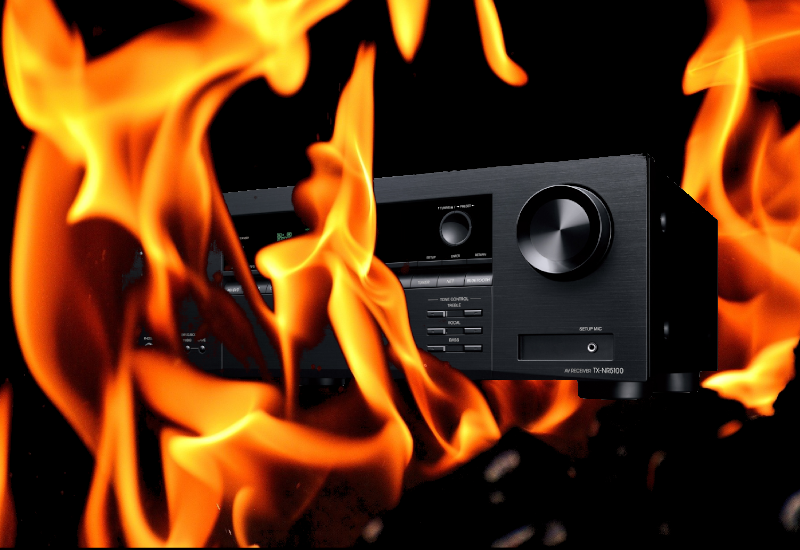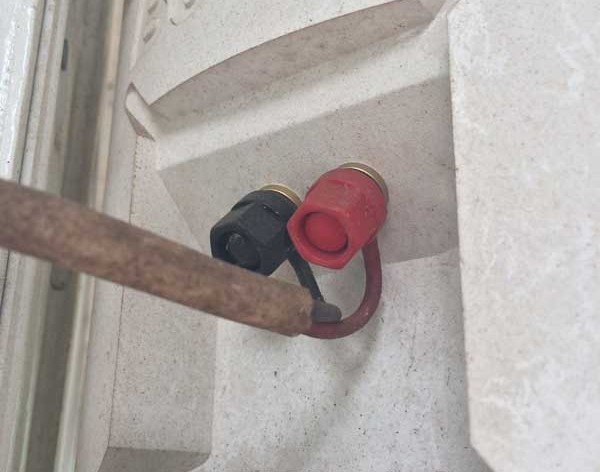Old Speaker Wire – Is It Safe?
You’ve had your system for a while. Maybe a LONG while. Perhaps you’ve even got some speakers outside that are powered by your AV receiver. In all this time, you’ve never once thought about your speaker wires. But you had to change a speaker or maybe you decided to paint your room and you noticed that the back of your speaker looks like the image at the top of this page. That wire looks gross! It is rusted and dirty. Surely that can’t be good for the audio! That got you thinking about the rest of your speaker wire. Is old speaker wire safe to use? Will it affect sound quality? Should you swap it out or change it? Let’s discuss!
Getting it Right the First Time
If you are serious about audio and home theater, you probably researched speaker wire before you set up your system. If you did, you likely either bought the correct-sized speaker wire or something too thick “just to be safe.” Even if your speaker wire has a smaller gauge than recommended, you are likely fine. But, in the unlikely case that you have extremely long speaker wire runs with very thin wire, then you should use this opportunity to swap them out. If you are motivated enough to seek out this article, then go ahead and do the work to get the right-sized speaker wire in your system.
Old Speaker Wire and Audio Quality
You may have noticed rust or oxidation on your speaker wire. This is especially true if your wires are run outside or have a bare wire connection to your speaker. In most cases, if you were to cut off the oxidized end of the wire and strip back a little of the jacket, you’d find clean, unoxidized wire underneath. If this makes you feel better about the connection, then go ahead and give it a try.
But let’s take the worst-case scenario. Let’s pretend that the wire is oxidized back under the jacket. Let’s also pretend that it is oxidized all the way back to your AV receiver or amplifier. Could that affect audio quality?
The easy answer is “yes” but if you are asking the question, then it is “no.” See, a heavily oxidized wire will pass the signal just fine through the wire because the oxidation is all on the outside. The problem arises where the wire connects to the speaker. If the speaker is still making sound, then the oxidation hasn’t gotten to the point where it has affected the connection. If it isn’t making noise, then it has. This is not a case where the audio will sound different because of the oxidation, but a case where there will be no audio. If you can hear it, it is fine.
But The Resistance…
If you have read anything about wires, you’ll have learned about resistance (and impedance and capacitance). An oxidized wire will have higher resistance than a non-oxidized wire. This is true and measurable with the correct equipment. But what is also true is that this higher resistance is unlikely to be audible in any way nor is it likely to damage your equipment. You wondered if your old speaker wire is affecting your audio quality. The answer is still no.

Is Old Speaker Wire Safe?
Here is the real question. Can old speaker wire somehow be less safe or even dangerous? The thought process is clear. Old wire has higher resistance. Higher resistance can lead to heat generation. A speaker wire that is getting hotter because it is old could catch fire. Therefore…
Stop right there. In the history of speaker wires, we’ve never heard of a case where a speaker wire being old caused a fire. Speaker wires carry very low voltages. For a speaker wire to cause a fire, there would have to be a short somewhere. Since your AV receiver has built-in protection modes for shorts, any threat from one is immediately eliminated. Plus, an old wire doesn’t short, a broken one does.
Take Away
In short, old speaker wires are perfectly safe to use. If the oxidized ends bother or concern you, trim them off and re-terminate. You can even add banana plugs for a “cooler” connection. It won’t sound any better but your audiophile friends will be impressed.


